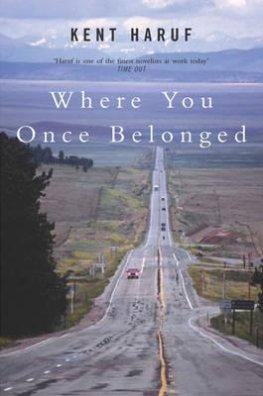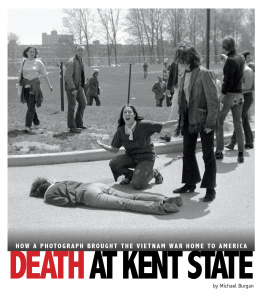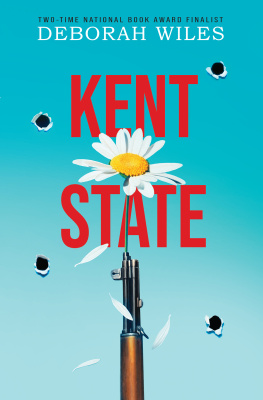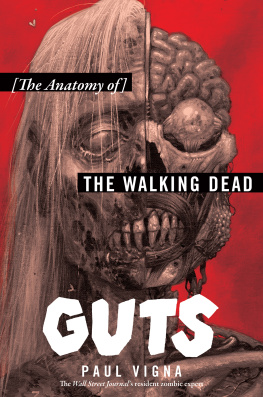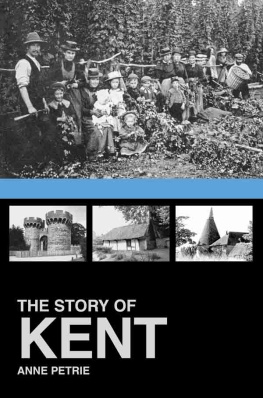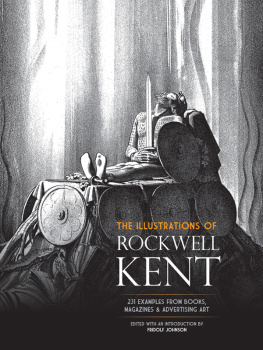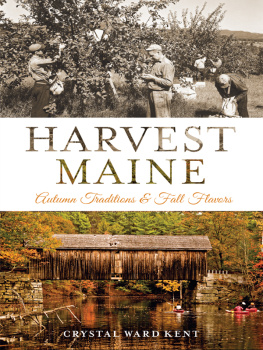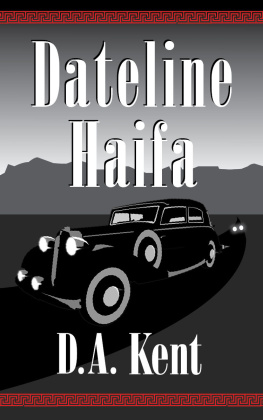Christobel Kent - Dead Season
Here you can read online Christobel Kent - Dead Season full text of the book (entire story) in english for free. Download pdf and epub, get meaning, cover and reviews about this ebook. year: 2012, publisher: Corvus, genre: Detective and thriller. Description of the work, (preface) as well as reviews are available. Best literature library LitArk.com created for fans of good reading and offers a wide selection of genres:
Romance novel
Science fiction
Adventure
Detective
Science
History
Home and family
Prose
Art
Politics
Computer
Non-fiction
Religion
Business
Children
Humor
Choose a favorite category and find really read worthwhile books. Enjoy immersion in the world of imagination, feel the emotions of the characters or learn something new for yourself, make an fascinating discovery.

- Book:Dead Season
- Author:
- Publisher:Corvus
- Genre:
- Year:2012
- Rating:4 / 5
- Favourites:Add to favourites
- Your mark:
- 80
- 1
- 2
- 3
- 4
- 5
Dead Season: summary, description and annotation
We offer to read an annotation, description, summary or preface (depends on what the author of the book "Dead Season" wrote himself). If you haven't found the necessary information about the book — write in the comments, we will try to find it.
Dead Season — read online for free the complete book (whole text) full work
Below is the text of the book, divided by pages. System saving the place of the last page read, allows you to conveniently read the book "Dead Season" online for free, without having to search again every time where you left off. Put a bookmark, and you can go to the page where you finished reading at any time.
Font size:
Interval:
Bookmark:
Christobel Kent
Dead Season
The city is dead in August. There is movement, but its not life.
By day the cruise groups still crawl the streets, slower and slower as the heat intensifies, filing like ants from the Palazzo Vecchio to Santa Croce, their queues snaking around the Duomo and under the arcades of the Uffizi, trying to find shade. The shops beyond the tourist centre are shuttered and silent, the restaurants closed. By day it is bad enough: by night it is a ghost of a place and the tall palaces along the Via dei Bardi, north of the Duomo, and behind Santo Spirito stand even more silent than usual.
There are pockets, on the citys fringes, where those too poor to escape the heat congregate in the shadows, the Senegalese and Nigerian traders, the travellers, the dispossessed. There is the African market, tucked in between the bridge of San Niccolo on the citys eastern edge, the embankment and the green flow of the river below or there was. Earlier this summer there has been a drive among the citys combined police forces to move the various itinerants along to some other and less visible meeting place; like almost all such moves, its effects will be temporary. The sellers of painted gourds and chipped Nubian heads and tasselled sandals will come back, to sell and to talk, to cook on improvised barbecues and drink sickly canned orange under the scrub oak, the air clouded with mosquitoes from the river below. But for now the place is deserted, or almost.
Where the scrubby trees abut the road, dilapidated crash barriers crowd against oleanders whose crimson flowers look black in the sulphurous streetlighting: even in the hard glare of an August midday, it is hard to see what lies under the densely packed bushes, and by night impossible. Tonight there is a breath of hot wind, a Saharan wind that carries with it tiny particles of sand that will be found the next morning along windscreen wipers. With the wind, the shadows under the trees flicker and shift.
One shadow, though, a low, crumpled shape between oleanders, does not move with the breeze, nor when another set of car headlights briefly illuminates its length beneath the leaves. A silk-socked foot, shoeless; a dark trouser leg, stained darker higher on the leg with a colour that will not be distinguishable against the grey until dawn comes. A battered hand twisted under the body and what should have been a face turned into the dirty scrub.
The flow of August traffic passes on its way out of the city, but no one notices or stops to look. There is no knowing how long he has been there, nor when he will be found.
*
Sandro Cellini was hardly aware of having slept at all, but the luminous dial of the bedside clock told him that it was two-thirteen when he started up in the dark, unable to breathe. Just raising himself from the pillow brought Sandro out in a sweat: he sat against the bedhead and told himself, slow down. It was the heat.
He breathed: slow, shallow, in and out. Sandro knew that if he mentioned this to his old friend Pietro, heaven forbid to Luisa they might suggest, gently, that he talk to someone. A professional. He sat as still as he could, felt the sweat cool on his skin, felt the strong thump of his heart slow to normal.
Beside him, lying on her back, Luisa didnt stir. Her forearms were folded over her chest, protective of its asymmetry under the thin nightgown. On one side a hollowed scar where once there had been a breast; careless of it by day, in her sleep his wifes hands infallibly found their way to the site of the excision. In the slitted light falling through the shutters, Luisas cheekbones gleamed marble-blue and monumental. A motorino whined past, then another and on the streets southern corner twenty metres away a burst of cackling rose from the drunks. This apartment, thought Sandro out of nowhere: this place. I hate this place.
It was the heat.
CHAPTER ONE
Tuesday
Working in the city in August just wasnt civilized. Climbing the stairs to his office for an eight-thirty appointment foisted on him by Giuli, his assistant insofar as anyone was, with a tiny, scalding plastic cup of espresso in his hand, Sandro reflected glumly on this conclusion. Only the dregs of society found themselves sitting at a desk in August, only the driven and desperate and enslaved. Forty degrees in the shade by day, and at two-thirteen that morning, when Sandro had been gasping like a fish in the bathroom, it had been thirty-one.
Luisa had not wanted him to buy a thermometer Why torture yourself? What is this obsession with numbers? but Sandro had done it on the sly; it hung just outside the bathroom window. Going in there in the early hours, as he often needed to do these days, he could lean out and take a look.
Thirty-one degrees three hours before dawn, and not a breath of cooler air anywhere in the city. Even the moon, shining perfectly round and white overhead, seemed to give out heat. During the day there were distractions but at night, in those long, dead hours between midnight and dawn when by rights the world should be cooling, the heat bore down like a weight. The very thought of Florences tonnes of sun-soaked stone, of the eighty kilometres of baked earth separating them from the coast, of the humidity that rose off the sluggish river and the encircling hills that held it in, was enough to bring on a panic attack.
Which was all it was: panic. The heat.
Luisa had pointed out to him a week ago when the month had begun not with a bang but with the sigh of departing life: empty parking spaces everywhere, shutters pulled down that now he was a private investigator, a freelance who could theoretically please himself, whereas when Sandro had been a captain in the Polizia dello Stato, he had been obliged to work in August.
That was different, Sandro had said.
Hands on hips, Luisa had not dignified this with a reply, but Sandro could have defended himself if he had had the energy.
It had been different, though: different having one desk of many in a big, air-conditioned building, moving through quiet corridors, everyone being in the same boat, the bar next to the police station staying open all year round even on the mid-August holiday, Ferragosto not to mention Christmas Day to cater to the officers. Who after all were providing an essential service. And out in the patrol car, there had always been Pietro to talk to.
Sandros partner official or otherwise for twenty of his thirty years in the Polizia dello Stato, Pietro Cavallaro was a modest, thoughtful man six years his junior, with a round, red-headed wife of permanently sunny disposition and a pretty daughter now coming up to eighteen. (Sandro registered that the big day was tomorrow, wasnt it? Hed arranged to meet Pietro tonight, with their gift for the girl. Damn.) A careful, meticulous man, slow to anger: the perfect complement to Sandro, who had been described as impatient, irascible, impetuous given to obsessive pursuits but also flashes of insight.
Very occasional flashes, these days, Sandro thought gloomily, gazing out of the window, and no Pietro to bounce them off. He heard a siren, not far away, and by ear he mapped its path around the viale from the four-lane modern span of the Ponte alla Vittoria to the choked roundabout of the Porta Romana. A motorino crash on one of the bends that the Viale Michelangelo carved through the wooded hillside south of the city, perhaps? There was at least one a week. Lucky if the kid wasnt under a bus. He turned away, telling himself simply to be grateful he wasnt knocking on some parents door.
If August was a quiet month in the police, there was always something to do: there was paperwork to catch up on; there was drunkenness among tourists, rough sleepers to be moved on, and never mind the domestic squabbles that broke out or the psychiatric patients wandering the streets. People just went nuts in the heat, whether they were already on the edge or not.
Font size:
Interval:
Bookmark:
Similar books «Dead Season»
Look at similar books to Dead Season. We have selected literature similar in name and meaning in the hope of providing readers with more options to find new, interesting, not yet read works.
Discussion, reviews of the book Dead Season and just readers' own opinions. Leave your comments, write what you think about the work, its meaning or the main characters. Specify what exactly you liked and what you didn't like, and why you think so.

